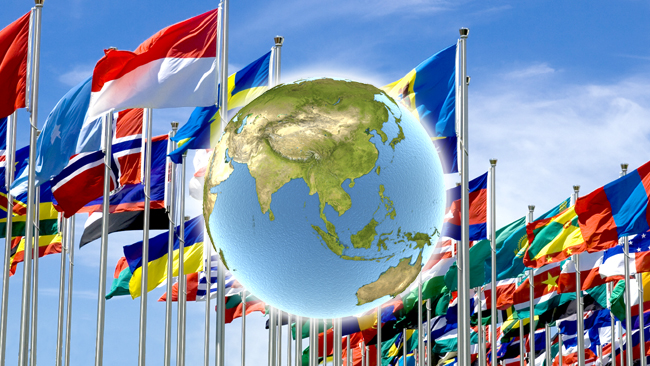
The world is facing a serious challenge to maintain peace and stability in the face of escalating tensions and violence in some regions. Two of the most prominent examples are the ongoing conflict between Hamas and Israel in the Middle East, and the rising threat of war between Ukraine and Russia in Europe. These situations pose a grave risk to the security and well-being of millions of people, as well as to the global order and cooperation.
I will provide a brief overview of the causes and consequences of these conflicts and discuss some possible ways to resolve them peacefully and diplomatically. I will also highlight the role and responsibility of the international community, especially the United Nations, in preventing further escalation and promoting dialogue and negotiation.
Hamas vs Israel: A Longstanding Struggle
The conflict between Hamas and Israel is rooted in the historical dispute over the land of Palestine, which both sides claim as their ancestral homeland. The establishment of the state of Israel in 1948, following the end of the British mandate, led to a series of wars and clashes with the Arab states and Palestinian factions, resulting in the displacement and occupation of millions of Palestinians.
Register for Tekedia Mini-MBA edition 19 (Feb 9 – May 2, 2026): big discounts for early bird.
Tekedia AI in Business Masterclass opens registrations.
Join Tekedia Capital Syndicate and co-invest in great global startups.
Register for Tekedia AI Lab: From Technical Design to Deployment (next edition begins Jan 24 2026).
Hamas, which stands for Islamic Resistance Movement, is a militant Islamist group that emerged in 1987 as an offshoot of the Muslim Brotherhood. It rejects the existence of Israel and seeks to establish an Islamic state in all of historic Palestine. It has been designated as a terrorist organization by many countries, including the United States, the European Union, and Israel.
Hamas controls the Gaza Strip, a densely populated coastal enclave that has been under an Israeli blockade since 2007, when Hamas seized power from its rival faction, Fatah, which governs the West Bank. The blockade has severely restricted the movement of goods and people in and out of Gaza, creating a humanitarian crisis and fueling resentment and anger among the population.
The conflict between Hamas and Israel has flared up periodically, with rockets fired from Gaza into Israeli territory, and airstrikes and ground incursions by Israel into Gaza. The most recent escalation occurred in May 2021, when Hamas launched more than 4,000 rockets at Israel, following violent clashes at the Al-Aqsa Mosque compound in Jerusalem, a holy site for both Muslims and Jews.
Israel responded with a massive bombing campaign that targeted Hamas’s infrastructure, leaders, and militants, as well as civilian buildings and infrastructure. The 11-day war killed more than 250 people in Gaza, mostly civilians, and 13 people in Israel, including two children.
The war ended with a ceasefire brokered by Egypt, with the mediation of other countries such as Qatar and Turkey. However, the underlying issues that fuel the conflict remain unresolved, such as the blockade of Gaza, the expansion of Israeli settlements in the West Bank, the status of Jerusalem, and the fate of Palestinian refugees. Without addressing these issues through a political process that respects the rights and aspirations of both sides, there is a high risk of another outbreak of violence in the future.
The role of UN in this conflict
The United Nations has been involved in various efforts to resolve the conflict between Hamas and Israel since its inception. The UN General Assembly adopted Resolution 181 in 1947, which proposed a partition plan for Palestine into two states: one Jewish and one Arab. However, this plan was rejected by the Arab states and Palestinian leaders, who considered it unfair and unjust.
The UN Security Council adopted Resolution 242 in 1967, after the Six-Day War between Israel and its Arab neighbors. This resolution called for the withdrawal of Israeli forces from territories occupied during the war, and for the recognition of every state’s right to live in peace within secure and recognized boundaries. This resolution has been widely accepted as the basis for a two-state solution to the conflict.
The UN also established several agencies and missions to provide humanitarian assistance, protection, and monitoring to the Palestinian people. These include:
-
The United Nations Relief and Works Agency for Palestine Refugees in the Near East (UNRWA), which provides education, health care, social services, and emergency aid to more than five million Palestinian refugees in Gaza, West Bank, Jordan, Lebanon, and Syria.
-
The United Nations Truce Supervision Organization (UNTSO), which monitors ceasefires and other agreements between Israel and its Arab neighbors.
-
The United Nations Special Coordinator for the Middle East Peace Process (UNSCO), which represents the Secretary-General’s efforts to support peace negotiations between Israelis and Palestinians.
-
The Office for the Coordination of Humanitarian Affairs (OCHA), which coordinates humanitarian response to emergencies in Gaza and West Bank.
-
The Office of the High Commissioner for Human Rights (OHCHR), which monitors and reports on human rights violations in Gaza and West Bank.
-
The United Nations Human Rights Council (UNHRC), which investigates alleged violations of international humanitarian law and human rights law by all parties to the conflict.



